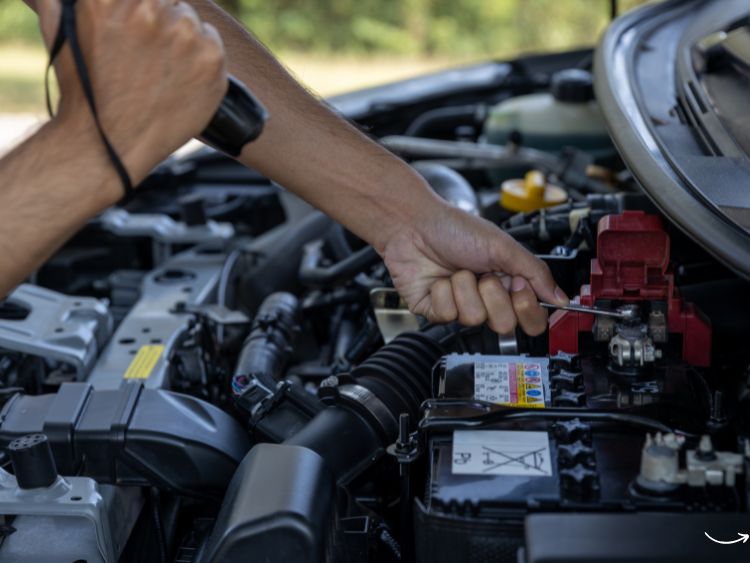Have you ever been stuck in the middle of nowhere with a dead car battery? It’s a nightmare scenario for any driver. But what if there was a solution that offered reliability, longevity, and minimal maintenance? Enter the world of gel car batteries. These innovative power sources are revolutionizing the automotive industry, providing drivers with peace of mind and performance they can count on. In this comprehensive guide, we’ll delve into the ins and outs of gel car batteries, exploring their benefits, how they work, and why they might be the best choice for your vehicle.
What Is a Gel Car Battery?
A gel car battery is a type of lead-acid battery that uses a gel electrolyte instead of the liquid or absorbed electrolyte found in traditional batteries. This gel is created by mixing sulfuric acid with silica, resulting in a thick, pasty substance that doesn’t spill or leak, even if the battery casing is damaged.
How Do Gel Car Batteries Work?
Gel car batteries operate similarly to standard lead-acid batteries but with a few key differences:
- Electrolyte Composition: The gel electrolyte is immobilized, preventing spills and reducing the risk of leakage.
- Plate Structure: The battery plates are designed to work efficiently with the gel electrolyte, ensuring consistent performance.
- Ventilation: Gel batteries are sealed and have a pressure release valve to maintain internal pressure and prevent gas buildup.
Benefits of Gel Car Batteries
Why should you consider a gel car battery for your vehicle? Here are some compelling reasons:
1. Maintenance-Free Operation
One of the biggest advantages of gel car batteries is that they are maintenance-free. Unlike traditional lead-acid batteries, you don’t need to check the water levels or add distilled water periodically. This feature makes them an excellent choice for those who prefer a set-it-and-forget-it solution.
2. Leak-Proof Design
The gel electrolyte is contained within the battery, making it spill-proof and leak-proof. This design ensures that the battery can be mounted in various positions without the risk of leaking acid, which can cause damage to your vehicle and pose safety hazards.
3. Vibration Resistance
Gel car batteries are highly resistant to vibrations, making them ideal for vehicles that are subjected to rough terrains or frequent jostling. This resistance helps prevent internal damage and extends the battery’s lifespan.
4. Longer Lifespan
Gel batteries generally have a longer lifespan compared to conventional lead-acid batteries. Their design and construction reduce the risk of sulfation and other common battery issues, ensuring you get more bang for your buck.
5. Stable Performance
Gel car batteries provide stable and reliable performance across a wide range of temperatures. Whether you’re driving in the scorching heat of summer or the freezing cold of winter, you can count on your gel battery to deliver consistent power.
Disadvantages of Gel Car Batteries
While gel car batteries offer numerous benefits, they also come with a few drawbacks that are worth considering:
1. Higher Initial Cost
Gel batteries tend to be more expensive upfront compared to traditional lead-acid batteries. However, their longer lifespan and reduced maintenance needs can offset this initial investment over time.
2. Charging Sensitivity
Gel batteries are more sensitive to overcharging and undercharging. They require a specific charging profile to ensure optimal performance and longevity. Using the wrong charger or improper charging methods can significantly shorten the battery’s life.
3. Limited Availability
While gel car batteries are becoming more popular, they are not as widely available as traditional batteries. Depending on your location, you might find it challenging to source a gel battery or find a compatible charger.
How to Choose the Right Gel Car Battery
Selecting the right gel car battery for your vehicle involves considering several factors:
1. Battery Size and Compatibility
Ensure that the gel battery you choose is compatible with your vehicle’s specifications. Check the battery size, terminal type, and overall dimensions to avoid any fitting issues.
2. Cold Cranking Amps (CCA)
Cold Cranking Amps (CCA) is a crucial factor to consider, especially if you live in an area with cold winters. CCA indicates the battery’s ability to start the engine in cold temperatures. Higher CCA ratings are better for colder climates.
3. Reserve Capacity (RC)
Reserve Capacity (RC) measures the battery’s ability to power your vehicle’s electrical systems if the alternator fails. A higher RC rating indicates a longer duration of power supply, providing you with more time to address any issues.
4. Brand and Warranty
Opt for reputable brands known for their quality and reliability. Additionally, check the warranty offered by the manufacturer. A longer warranty period indicates confidence in the product’s performance and durability.
Installation and Maintenance Tips
Installing a gel car battery is straightforward, but there are a few tips to ensure optimal performance and longevity:
1. Proper Installation
Follow the manufacturer’s guidelines for installation. Ensure the battery terminals are clean and free of corrosion. Tighten the connections securely to avoid any loose contacts.
2. Regular Inspections
While gel batteries are maintenance-free, it’s still a good idea to inspect them periodically. Check for any signs of damage, swelling, or leaks. Ensure the battery is securely mounted and that the terminals are clean.
3. Correct Charging
Use a charger specifically designed for gel batteries. Avoid overcharging or undercharging, as this can damage the battery. Follow the manufacturer’s recommendations for charging rates and methods.
FAQs
1. What is the difference between a gel battery and an AGM battery?
Both gel and Absorbent Glass Mat (AGM) batteries are types of sealed lead-acid batteries. The main difference lies in the electrolyte composition. Gel batteries use a gel-like substance, while AGM batteries use absorbed electrolytes in glass mats. AGM batteries are generally more tolerant to high discharge rates and are better suited for applications requiring quick bursts of power.
2. Can I use a regular charger for my gel car battery?
No, it’s essential to use a charger specifically designed for gel batteries. Regular chargers can overcharge or undercharge the battery, leading to reduced performance and lifespan. Look for a charger with a gel setting or one recommended by the battery manufacturer.
3. How long do gel car batteries typically last?
Gel car batteries can last between 5 to 7 years, depending on usage, maintenance, and environmental conditions. Proper charging and regular inspections can help extend the battery’s life.
4. Are gel car batteries suitable for all types of vehicles?
Gel car batteries are suitable for most vehicles, including cars, trucks, and recreational vehicles (RVs). Their leak-proof design and vibration resistance make them particularly well-suited for off-road and marine applications.
5. Can gel car batteries be recycled?
Yes, gel car batteries are recyclable. Most components, including the lead and the plastic casing, can be recycled and repurposed. Check with your local recycling center or battery retailer for proper disposal methods.
Conclusion
Gel car batteries offer a reliable, maintenance-free solution for drivers seeking longevity and performance. Their spill-proof design, vibration resistance, and stable performance make them an excellent choice for various applications. While they come with a higher initial cost and require specific charging methods, their benefits often outweigh these drawbacks. By understanding how gel car batteries work, their advantages, and how to choose the right one, you can make an informed decision that ensures your vehicle runs smoothly and efficiently.
Authoritative Links:
- www.batterycouncil.org
- www.consumerreports.org
- www.autobatteries.com
- www.batteryuniversity.com
- www.researchgate.net
With this guide, you’re now equipped with the knowledge to make an informed decision about whether a gel car battery is the right choice for you.





